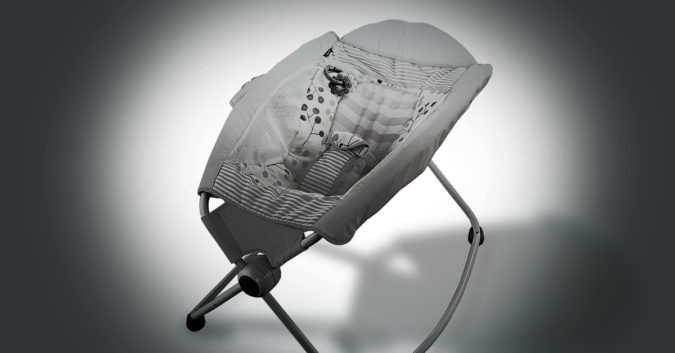During the first week of June, the U.S. Consumer Product Safety Commission (CPSC) announced a ban on an assortment of infant sleeping products that have been tied to at least 90 infant deaths, according to reports.
The ban will close a loophole that currently allows companies to manufacture, market, and sell infant sleepers that do not meet the federal safety standards for cribs, bassinets, and other bedside sleepers. Because the infant sleepers in question were not classified as cribs, bassinets, or bedside sleepers, they were not required to comply with the federal safety standards for those kinds of products.
Closing the loophole will now force the manufacturers of infant sleeping products to meet the safety standards already in place for cribs, bassinets, and bedside sleepers.
Affected by the CPSC’s ban are:
- Inclined sleepers
- In-bed sleepers
- Baby boxes
- Sleep hammocks
- Small bassinets without a stand
CPSC voted 3-1 to pass the measure, which will go into effect in June 2022. While the CPSC is currently split between party lines — composed of 2 democrats and 2 republicans — the rule was approved with bipartisan support.
“I think this is a proud moment for the commission,” said Robert Adler, who is acting CPSC chairman.
Consumer Safety Advocates Applaud New Regulation
Advocacy groups contend that the CPSC’s ban will do well to combat a boom of untested, unregulated infant sleeping products that have gained a major foothold in the U.S. market in recent years.
Supporters of the ban also claim that many of the recently developed sleeping products directly contradict well-established safe sleeping guidelines that recommend infants sleep alone, on their backs, and on flat surfaces only.
Indeed, the American Academy of Pediatricians (AAP) supported closing the loophole. According to AAP, “Infants should be placed for sleep in a supine position (wholly on the back) for every sleep by every caregiver until the child reaches 1 year of age.”
Closing the loophole builds on previous regulations set in 2019, when the CPSC forced a recall on inclined sleepers after it was determined that Fisher-Price’s Rock ‘n Play™ inclined sleeper product was tied to nearly 3 dozen infant deaths. Accordingly, Fisher-Price® recalled 4.7 million Rock ‘n Play sleepers. The company Kids II, which had designed a similar product, recalled 700,000 of its inclined sleepers as well.
Designed for babies to sleep at a 30-degree angle, inclined sleepers increase the risk of infant suffocation, according to studies.
After separate investigations by The Washington Post and Consumer Reports, it was determined that Fisher-Price had designed their inclined sleeper without any input from medical experts. They also failed to test their inclined sleeper product for safety.
A Ban on Unsafe Sleep Products Is a Win for Parents
In a statement, acting CPSC Chairman Bob Adler said:
“Today’s vote ensures that when a product is intended or marketed for sleep, it will indeed be safe for an infant to sleep. [This marks] perhaps one of my proudest moments as a Commissioner at the CPSC….What we’ve done today fulfills the most sacred of our obligations as Commissioners — to take steps to protect vulnerable consumers, including babies.”
On Monday, June 14, there will be a related congressional hearing before the House Committee on Oversight and Reform on infant product safety. The focus of the hearing will be Fisher-Price’s Rock ‘n Play inclined sleeper. Both Fisher-Price executives and executives from Mattel, Fisher Price’s parent company, will testify.
For parents who have lost children due to unregulated infant sleep products, the new law — while important for protecting the lives of infants moving forward — comes too little, too late.
Their losses are tragic and incalculable.
In closing, we, at Sokolove Law, would like to share our support of this new rule, as well as our support for the parents who have lost children as a result of using these unregulated products.
We ask that readers truly consider the weight of their comments before posting them and refrain from shifting the blame away from these unsafe products and onto the parents who have lost their children.
